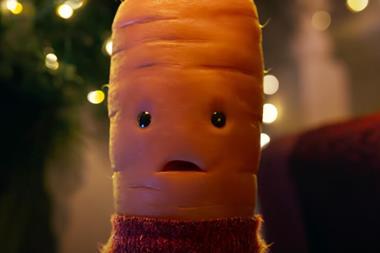John Lewis has won a court case in which a children’s author claimed the retailer had stolen one of her designs for its Edgar the dragon Christmas advert.
Fay Evans brought a case for copyright infringement, alleging there was a ”striking” resemblance between her character, Fred the Fire-Sneezing dragon and John Lewis’ ‘Excitable Edgar’.
A High Court judge ruled there was no evidence the team that created the advert knew about Evans’ work.
The advert first aired in November 2019, while Evans’ book was published in 2017. Evans had suggested on social media that her book had been copied in the advert.
The author sued John Lewis and Adam & Eve DDB, the creative agency behind the ad.
The two companies argued that the ad was based on an idea first pitched to John Lewis in 2016. Both disputed the claim, arguing there were “numerous and substantial differences” between the book and the advert.
Both stories feature dragons who struggle to make friends due to their fire-breathing abilities, with the John Lewis advert showing Excitable Edgar accidentally setting fire to things.
In Evans’ book, Fred struggles to control his fire breathing at school, but is then encouraged to use this ability to cook for fellow pupils.
Mrs Justice Clarke said there was “not a scrap of evidence” John Lewis or Adam & Eve DDB were aware of Evans’ story before the court case.
She said: “The similarities between Fred the Fire-Sneezing Dragon on the one hand and Excitable Edgar are few in number and can easily be explained by coincidence rather than copying.
“There can be no copying if the work alleged to have been copied has not been accessed (i.e. seen, in this case) by those said to have copied it.”
Mrs Justice Clarke ordered Evans to publish the outcome of the trial on her website, which the writer had previously used to publicise the row.
A spokesman for John Lewis and Adam & Eve DDB said: “We take great pride and care in our Christmas advert and are glad that the judge recognised the originality of Excitable Edgar.
“We are pleased that the matter is now resolved after the court found there was no copyright infringement.”
- Sign up for our daily morning briefing to get the latest retail news and analysis



























No comments yet